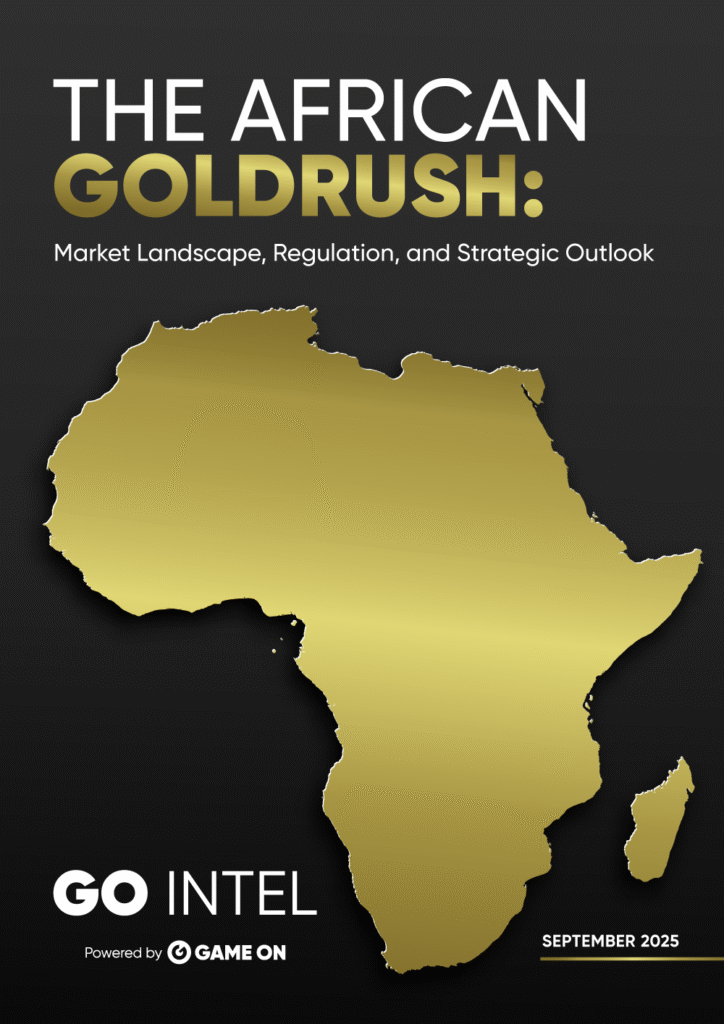Executive Summary
Africa’s iGaming industry in 2025 presents a vibrant yet complex picture of rapid growth and fragmentation. Mobile-first adoption is the hallmark of this boom – with inexpensive smartphones and widespread mobile money (e.g. Kenya’s M-Pesa, Nigeria’s Opay) enabling millions of young Africans to bet online even in areas lacking traditional banking or broadband infrastructure. Key markets like Nigeria, South Africa, Kenya, Ghana, and Tanzania are leading the charge. Nigeria’s gambling industry is projected to reach $3.63 billion by the end of 2025, the largest in Africa by revenue, closely followed by South Africa’s ~$4 billion gross gaming revenue (GGR) projection. These two giants, along with Kenya (East Africa’s mobile betting hub), Ghana (a fast-growing regulated market), and emerging economies like Tanzania, are driving continental GGR growth that far outpaces global averages.
Diversity in regulatory regimes defines the landscape – only about 15 African countries have comprehensive online gambling regulations in place, and approaches vary widely. Some (e.g. Kenya, Ghana) license multiple private operators, others (e.g. Morocco, Senegal) run state-controlled monopolies, while many (e.g. Egypt, Algeria) prohibit or heavily restrict gambling due to religious or social norms. This patchwork has led to fragmented oversight and enforcement gaps, with unlicensed offshore sites attracting players in markets where onshore options are limited. Still, several governments are realising the economic potential: there’s a clear trend of technological leapfrogging where mobile connectivity and fintech innovation fuel betting growth even amid weak legacy infrastructure. The demographic tailwinds are strong – a youthful population (average age ~20) entering adulthood with high sports fandom and digital savvy is creating a massive new customer base.
Operators and investors must navigate significant challenges despite the opportunity. Regulatory uncertainty – such as sudden tax or policy changes – remains a top risk. For example, Kenya’s government has repeatedly shifted betting tax rates (from 7.5% to 20%, then down to 15% and 5% within a few years), whipsawing operators and punters alike. Enforcement of rules can be inconsistent, leading to fraud and black-market play where oversight is weak[13]. Payment fraud and identity verification issues (AML/KYC) persist in markets with large unbanked populations. Taxation volatility and high levies (often applied to stakes or winnings) can encourage bettors to seek untaxed offshore platforms, undermining local operators. Meanwhile, responsible gambling frameworks are nascent – player protection tools and problem gambling awareness are limited across most of the continent.
Strategic imperatives for success in Africa’s iGaming boom include deep localisation, strategic partnerships, and long-term commitment. International operators are learning that product offerings, marketing, and customer experience must be tailored to local languages, cultures, and betting preferences (e.g. jackpot parlays on popular football leagues, mobile money integration, low-data apps) to win trust. Many have forged partnerships with local firms or agents to navigate regulatory mazes and distribution on the ground. Market leaders stress the importance of responsible gaming and community engagement early on – not only to preempt regulatory backlash but to build sustainable customer relationships. Despite current hurdles, the outlook is strongly positive: with supportive regulation, H2 Gambling Capital projects Africa’s sports betting and iGaming market could reach $22 billion GGR by 2029 (up from ~$17–18 billion in 2025). In the coming years, Africa will cement its global relevance as a growth engine for the gambling industry, attracting greater foreign investment, technology transfer, and innovation. Operators and regulators who strike a sensible balance between growth and governance stand to unlock a truly golden opportunity in the world’s fastest-growing betting market.

